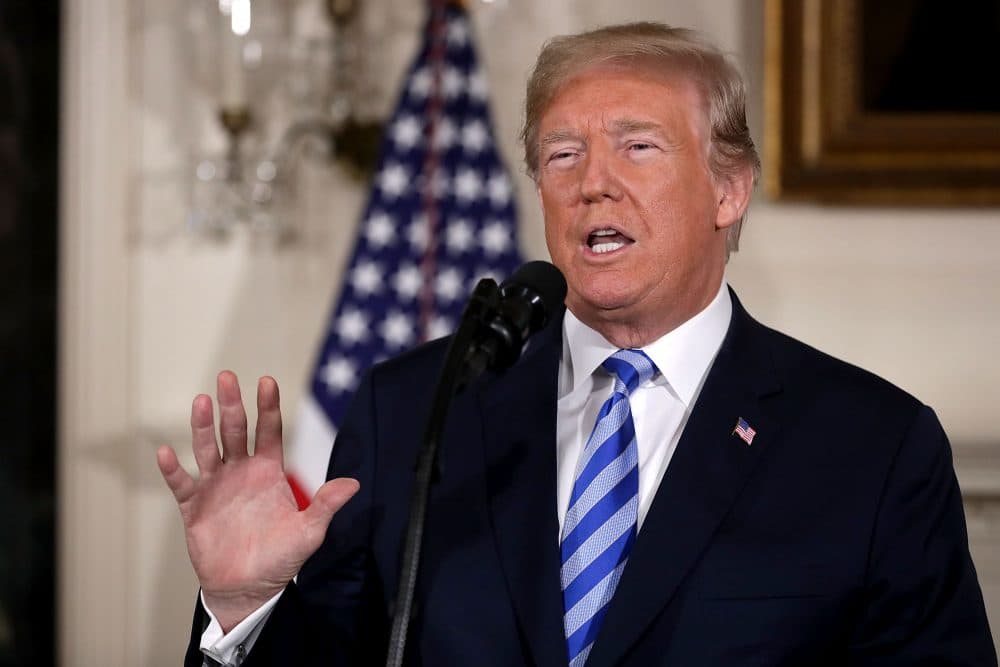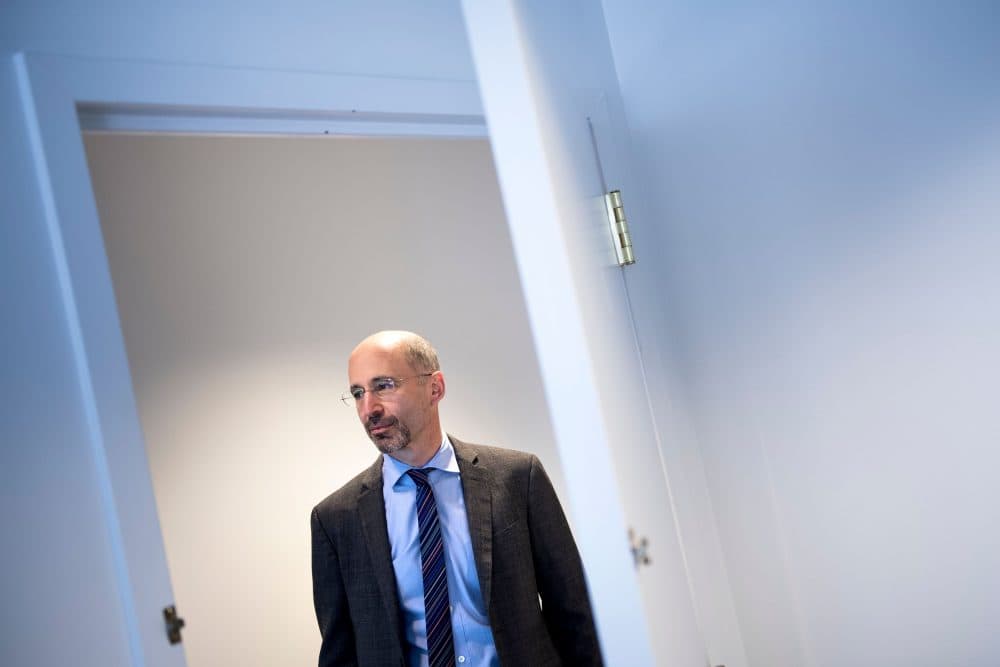Advertisement
No 'Sound Argument' In Trump's Iran Nuclear Deal Remarks, Former Obama Adviser Says

President Trump announced Tuesday that the U.S. will withdraw from the Iran nuclear deal negotiated under the Obama administration, which lifted economic sanctions on Iran in exchange for dismantling its nuclear weapons program.
Trump said those sanctions would be re-imposed.
Robert Malley, a former special assistant to President Obama who helped negotiate the deal, joined Here & Now's Robin Young and Jeremy Hobson to react following Trump's remarks.
"Of course, I'm biased — I'm not going to pretend to impartiality," Malley (@Rob_Malley) says. "But I didn't find any sound argument in what the president said."
Interview Highlights
On his reaction to hearing Trump's announcement
"The threat that he identified — which is that Iran might try to acquire a nuclear weapon — is precisely the threat that for at least 10, some would say 20, 25 [years], perhaps even beyond that, the deal was addressing: preventing Iran from developing a nuclear program. So that part is hard to understand.

"And then the second half, which as he says, 'I'm now gonna impose sanctions to address this problem,' it's hard to see how that will do it. Yes, they'll be crippling sanctions. They were crippling sanctions, by the way, prior to the agreement being reached, and that was the period during which Iran accelerated its program more than at any time before that. And those were sanctions that were crippling, because we had the international community with us, which he's just forfeited. So it's not addressing the threat, and finding a tool that's not gonna bring the Iranians to the table. I mean, he may say ... the president just said he thinks Iran will come to the table at some point. If they do that in the next two years, then, you know, good for him. But I say good luck."
"The president just said he thinks Iran will come to the table at some point. If they do that in the next two years, then, you know, good for him. But I say good luck."
Robert Malley
On Trump saying there is no verification of Iranian military sites, when in fact inspectors can ask to visit military sites
"They can ask to go, and if Iran refuses, there's a process, and if they keep refusing after the agency makes its request, then sanctions can be snapped back. So there is a process. In fact, I think most nuclear experts would say it's the toughest inspection regime ever negotiated, ever agreed by a party through diplomacy. So I do think that that was one of several unfair characterizations that he made."